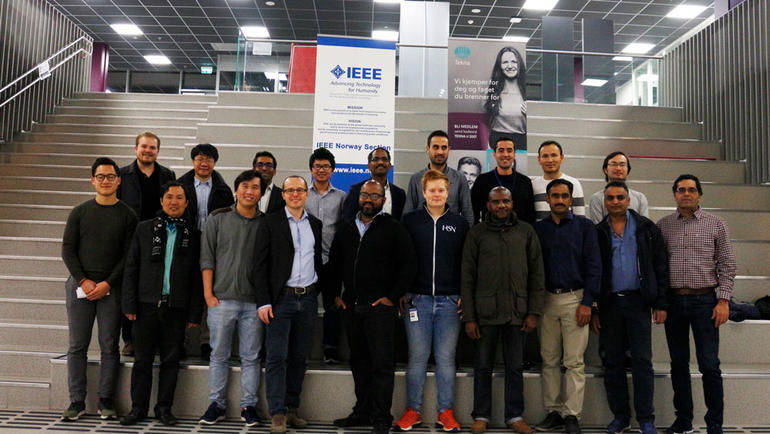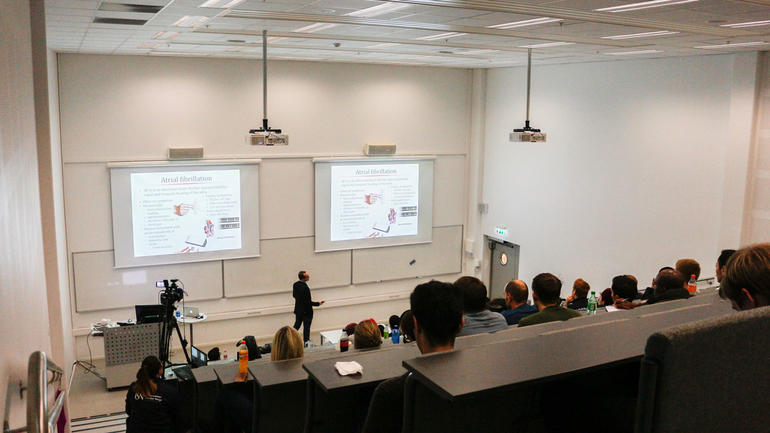Dr. Giorgio Quer is a Sr. Research Scientist at the Scripps Research (SR) in San Diego, California, and the Director of Artificial Intelligence at the SR Translational Institute.
His key points at the lecture:
‹Digitalise human beings using biosensors to track our complex physiologic system, process the large amount of data generated with artificial intelligence (AI) and change clinical practice towards individualised medicine: these are the goals of digital medicine.
At Scripps, we are a team of computer scientists, engineers, and clinical researchers, in partnership with health industries, and we propose new solutions to analyse large longitudinal data using statistical learning and deep convolutional neural networks to address different cardiovascular health issues.
One of the greatest contributors to premature mortality worldwide is hypertension. Lowering blood pressure (BP) by just a few mmHg can bring substantial clinical benefits, but it is hard to assess the “true” BP for an individual, since it fluctuates significantly.
With a dataset of 16 million BP measurements, we unveil the BP patterns and provide insights on the clinical relevance of these changes.
Another prevalent health issue is atrial fibrillation (AF), the most common sustained cardiac arrhythmia, associated with stroke, heart failure and coronary artery disease.
AF detection from single-lead electrocardiography (ECG) recordings is still an open problem, as AF events may be episodic and the signal noisy.
We conduct a thoughtful analysis of recent convolutional neural network architectures developed in the computer vision field, redesigned to be suitable for a one-dimensional signal, and we evaluate their performance in the detection of AF using 200 thousand seconds of ECG, highlighting the potential and pitfall of this technology.
Looking to the future, we investigate new applications for wearable devices and advanced processing in the All of Us Research Program, an unprecedented research effort to gather data from one million people in the USA to accelerate the advent of precision medicine.›

Dr. Giorgio Quer
- He received the B.Sc. degree, the M.Sc. degree (with honors) in Telecommunications Engineering and the Ph.D. degree (2011) in Information Engineering from University of Padova, Italy.
- In 2007, he was a visiting researcher at the Centre for Wireless Communication at the University of Oulu, Finland.
- During his Ph.D., he proposed a solution for the distributed compression of wireless sensor networks signals, based on the joint exploitation of Compressive Sensing and Principal Component Analysis.
- From 2010 to 2017, he was a visiting scholar at the California Institute for Telecommunications and Information Technology and then a postdoc at the Qualcomm Institute, University of California San Diego (UCSD), working on cognitive networks protocols and implementation.
- He is a Senior Member of the IEEE, a member of the American Heart Association (AHA), and a Distinguished Lecturer for the IEEE Communications society. His research interests include wireless sensor networks, compressive sensing, probabilistic models, deep convolutional networks, wearable sensors, physiological signal processing, and digital medicine.
